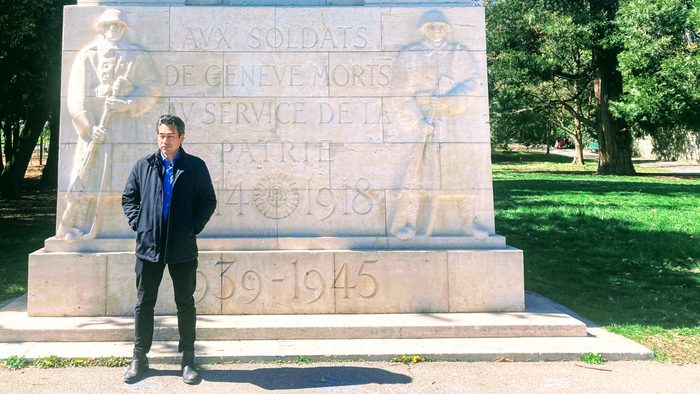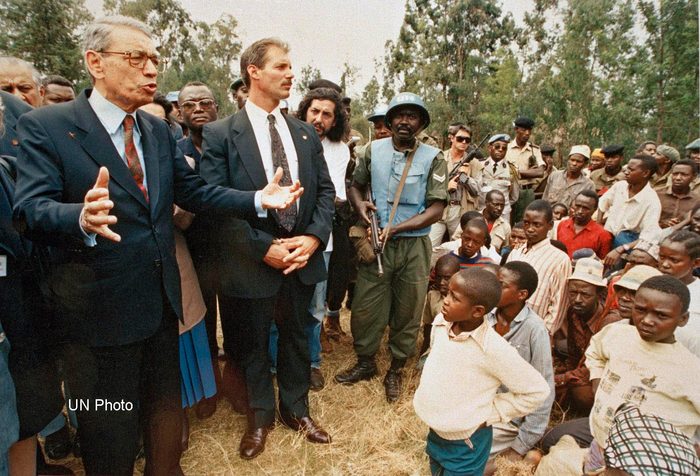Hello, this is Ben bringing you Geneva Solutions’ peace and humanitarian news coverage, produced this week in collaboration with The New Humanitarian.
Today, as news of abuses continue to emerge in Ethiopia and Myanmar, we’re looking at what it takes to tackle crimes against humanity. We’re also hearing whether diplomatic “choreography” can bring back the Iran nuclear deal. Meanwhile in Ethiopia, a poll of conflict-affected people says that aid isn’t getting where it’s needed. |
|
Peace and humanitarian news
|
|

Ralph Mamiya pictured in Geneva, 8 April 2021. (The New Humanitarian / Ben Parker)
|
|
Here’s what else is happening
|

Former UN Secretary-General Boutros Boutros-Ghali talks to survivors at Nyarubuye, Rwanda, during a brief visit to the church where hundreds of Rwandans were massacred during the genocide, July 1995. (Flickr / UN Photo)
|
|
Twenty-five years of atrocities and the responsibility to protect.
Whether or not to intervene in national conflicts - and to what extent - has challenged activists and humanitarian decision-makers for decades. As the UN commemorates the start of the Rwandan genocide in 1994, The New Humanitarian looks back at a quarter of a century of non-interference, intervention and the horrors that led to ‘The Responsibility to Protect’ (R2P).
The New Humanitarian (EN)
|
|

Image: Anti-coup protesters hold pictures of people killed by the military during a protest in Yangon, 5 April. (AP Photo)
|
|
The civilian death toll in Myanmar
has passed yet another grim milestone, with local rights groups claiming more than 700 people have been killed by the military since the start of the coup on 1 February, including dozens of children. Aid groups on the ground have also warned the country’s efforts to contain Covid-19 are crumbling amid the post-coup chaos, raising fears of a third wave of infections.
VOA News (EN)
|
|
|
GS news is a new media project covering the world of international cooperation and development. Don’t hesitate to forward our newsletter!
Have a good day!
|

|
|
Avenue du Bouchet 2
1209 Genève
Suisse
|
|
|
|











